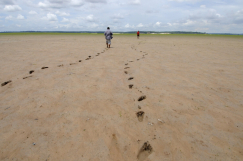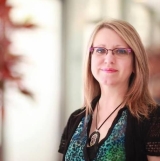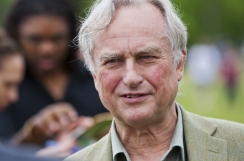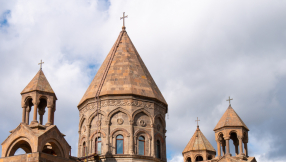
It's increasingly common to hear people's stories of losing their faith. The latest, Brandon Withrow, who was once an academic at a Christian college, is particularly interesting. He has opened up about his sense of grief on becoming an atheist.
He describes the loss of the superficial aspects of faith: tradition, liturgy, prayer book, but it's something more profound that has hurt. "I was surprised – and I know I'm not alone in this – at how powerful the loss of God could feel," he says. "Beyond giving up loved abstract doctrines, it seemed more like a family member had died. And like any death of a loved one, there is a grieving period."
Brandon's blog, the Discarded Image, gives hints of why he felt he had to abandon God. Though a pastor's kid, raised in an evangelical home, he expresses a lot of interest in evolution, writes critically of creationist and conservative positions, and calls himself a 'secular humanist'. He said that losing his faith was a "long and difficult intellectual journey". Though, I don't know if he has engaged with the deeper intellectual explorations of these issues by evangelical Christians.
For Brandon, it seems, he thinks his head has triumphed over his heart. Yet, he seems to be heartbroken.
I'm always fascinated and saddened by people who are in the process of, or have already, lost their faith. I have talked a lot to people in this position. Many are angry, though it's not always clear why. Some express a sense of loss, and even describe experiences that suggest to me that God is trying to woo them back. Yet still, their mind is set on atheism, as if it is the only possible route they can take.
Many come from a Christian background, and little by little, have discarded what they were taught, and instead embrace the liberal, secular worldview that surrounds us. It's particularly interesting for me, because I experienced the exact opposite. I come from a fairly secular background, and came to faith in Christ as an adult after a long period of searching and questioning.
I know that the evangelical world can sometimes be one of little curiosity within fairly restrictive boundaries. Yet I found that the further I went into my evangelical faith, the more I was open to exploring the world around me. Though I was pretty cynical and had made a living from asking questions, I hadn't gone that deeply in my scepticism until I started to explore Christianity. In the West we are all immersed in quite a dogmatic worldview, expressed in our universities, newspapers and our schools: a secular, liberal, empirical, scientistic way of thinking. It's a worldview that's rarely questioned, at least in the 'public square'. So for me, my faith has been an intellectual renaissance: really opening up the world and allowing me to really think about what I have been taught and had accepted all my life.
Yes, evangelicals can be dogmatic and unthinking. But I see this just as much in the world outside the church. Is secular dogmatism drawing people away from what their heart says is true?
My 'head' has benefited enormously from my faith – but even more has my heart been transformed. I am not surprised that Brandon is grieving: the love of God is for me, the centre of the universe, and the fabric of existence. Losing my faith would be heartbreaking. I'm grateful that I've been able to ask enough questions to satisfy myself that it is true.


















